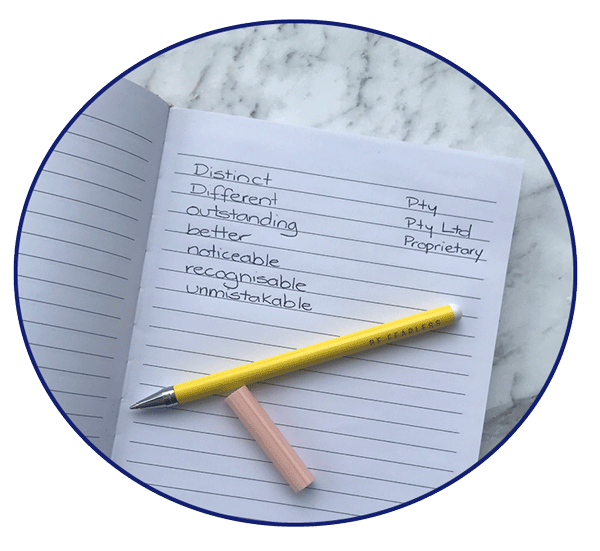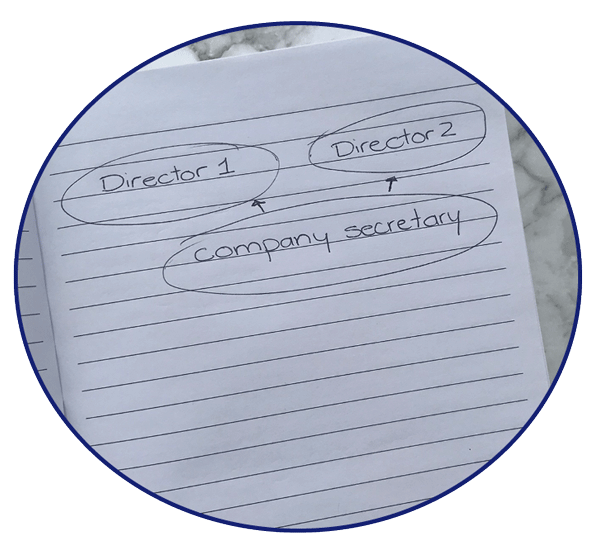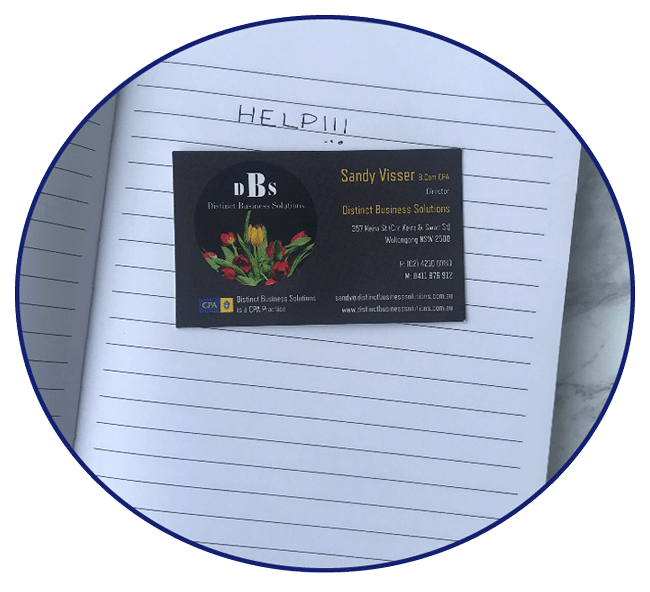Starting a Company

Starting a company can be an overwhelming experience. Having the right advice makes all the difference. Follow these steps to starting a company for a hassle free guide to getting started.






Step 1: Decide on the type of company
There are two main types of companies in Australia
- limited by shares and
- unlimited with a share capital
A company that is limited by shares means that the owner (shareholder) does not need to pay any extra money and is only obliged to pay the price of the shares. If something were to go wrong with the business the shareholders would not need to pay the company’s debts.
A company that is unlimited with a share capital means that there is no limit to the amount of money an owner (shareholder) needs to give. They could be responsible for any company debts.
The most common type of company is a company limited by shares (pty ltd) because of the protection this type of company provides for it’s owners. Generally a debtors couldn’t come after your personal assets like your home if the company is limited by shares. Just remember that if there is any wrongdoing or illegal activity by owners or directors their personal assets become fair game for debtors.
Step 2: Decide on rules or a constitution
Every company, limited or unlimited must have rules which explain how it runs. The Corporations Act 2001 sets out a standard set of rules for how a company should run, these are known as “replaceable rules” and are used by most companies. If these rules don’t suit your business or you choose not to use them you will need to create and adopt a company constitution. If you are planning to create your own company constitution you will need to seek legal advice to ensure you comply with the Corporations Act 2001. It’s also a good idea to read through the replaceable rules and understand what they mean and require. You can find ASICs guide to the replaceable rules here
Step 3: Chose a name for your company
This is the fun part, you get to name your new company. You can choose a company name or have the company known by it’s ACN (Australian Company Number). The name needs to include information about whether the company is a public or propriety company and if it’s shareholder’s have limited or unlimited liability. This just means you need to include terms like pty ltd or proprietary limited in the title or if the company is unlimited only the term proprietary needs to be included.
Step 4: Select a business address
Every company must have a registered office address as well as a principal place of business address. These addresses can’t be a post office box, they need to be an actual place. The registered office is where all the mail related to the company will be sent. The the principal place of business address is the physical address that you work out of.
Step 5: Choose the company director(s) and secretary
Every proprietary company must have at least one director. These are the people who run and make decisions for the company. You can also select a Company Secretary if you would like to. A Company Secretary can be a big asset to a company if it has a large number of directors. The Company Secretary will be responsible for Corporate Governance as well as board papers, meeting agendas and notification of meetings.
Step 6: Choose a share structure
Every company must have shareholders. Each of these shareholders must hold at least one share in the company. You can choose a large or small number of shares depending upon what suit your company. You may have one shareholder with one share or you may want to have 10 shareholders with 1 share each and 3 shareholders with 50 shares each, you should consider what would work best for you and your new company.
You also need to decide on share classes. Most companies utilise the “ordinary shares” share class, as these are the least complicated share type to implement with no special requirements. The cost and number of shares will be determined by the amount of capital the business needs to raise.
Step 7: Decide on the shareholders
A shareholder (or member) is a person or company that owns shares in a company. These people are required to pay the company for their share. It is important that each shareholder provides written confirmation of the amount of shares and how much money they are agreeing to pay.
Congratulations, if you’ve followed these steps you have made all the crucial decisions and you’re ready to start your company!
We understand that the process of starting a company can be stressful and we’re here to help! If you have any questions or would like a hand setting up your company DBS is on your side. We work Australia wide and provide support, understanding and a can do attitude to help you get started or take the next step in business. So give us a call for a free 15 minute phone consultation or email us using the contact form below.

Step 1: Decide on the type of company
There are two main types of companies in Australia
- limited by shares and
- unlimited with a share capital
A company that is limited by shares means that the owner (shareholder) does not need to pay any extra money and is only obliged to pay the price of the shares. If something were to go wrong with the business the shareholders would not need to pay the company’s debts.
A company that is unlimited with a share capital means that there is no limit to the amount of money an owner (shareholder) needs to give. They could be responsible for any company debts.
The most common type of company is a company limited by shares (pty ltd) because of the protection this type of company provides for it’s owners. Generally a debtors couldn’t come after your personal assets like your home if the company is limited by shares. Just remember that if there is any wrongdoing or illegal activity by owners or directors their personal assets become fair game for debtors.

Step 2: Decide on rules or a constitution
Every company, limited or unlimited must have rules which explain how it runs. The Corporations Act 2001 sets out a standard set of rules for how a company should run, these are known as “replaceable rules” and are used by most companies. If these rules don’t suit your business or you choose not to use them you will need to create and adopt a company constitution. If you are planning to create your own company constitution you will need to seek legal advice to ensure you comply with the Corporations Act 2001. It’s also a good idea to read through the replaceable rules and understand what they mean and require. You can find ASICs guide to the replaceable rules here

Step 3: Chose a name for your company
This is the fun part, you get to name your new company. You can choose a company name or have the company known by it’s ACN (Australian Company Number). The name needs to include information about whether the company is a public or propriety company and if it’s shareholder’s have limited or unlimited liability. This just means you need to include terms like pty ltd or proprietary limited in the title or if the company is unlimited only the term proprietary needs to be included.

Step 4: Select a business address
Every company must have a registered office address as well as a principal place of business address. These addresses can’t be a post office box, they need to be an actual place. The registered office is where all the mail related to the company will be sent. The the principal place of business address is the physical address that you work out of.

Step 5: Choose the company director(s) and secretary
Every proprietary company must have at least one director. These are the people who run and make decisions for the company. You can also select a Company Secretary if you would like to. A Company Secretary can be a big asset to a company if it has a large number of directors. The Company Secretary will be responsible for Corporate Governance as well as board papers, meeting agendas and notification of meetings.

Step 6: Choose a share structure
Every company must have shareholders. Each of these shareholders must hold at least one share in the company. You can choose a large or small number of shares depending upon what suit your company. You may have one shareholder with one share or you may want to have 10 shareholders with 1 share each and 3 shareholders with 50 shares each, you should consider what would work best for you and your new company.
You also need to decide on share classes. Most companies utilise the “ordinary shares” share class, as these are the least complicated share type to implement with no special requirements. The cost and number of shares will be determined by the amount of capital the business needs to raise.
Step 7: Decide on the shareholders
A shareholder (or member) is a person or company that owns shares in a company. These people are required to pay the company for their share. It is important that each shareholder provides written confirmation of the amount of shares and how much money they are agreeing to pay.
Congratulations, if you’ve followed these steps you have made all the crucial decisions and you’re ready to start your company!
We understand that the process of starting a company can be stressful and we’re here to help! If you have any questions or would like a hand setting up your company DBS is on your side. We work Australia wide and provide support, understanding and a can do attitude to help you get started or take the next step in business. So give us a call for a free 15 minute phone consultation or email us using the contact form below.
Want to know more about starting a company? We can help!
Contact Distinct Business Solutions today
0411 876 912
Any advice in this blog is general in nature and is intended for information purposes only. For personalised advice please contact your accountant.


